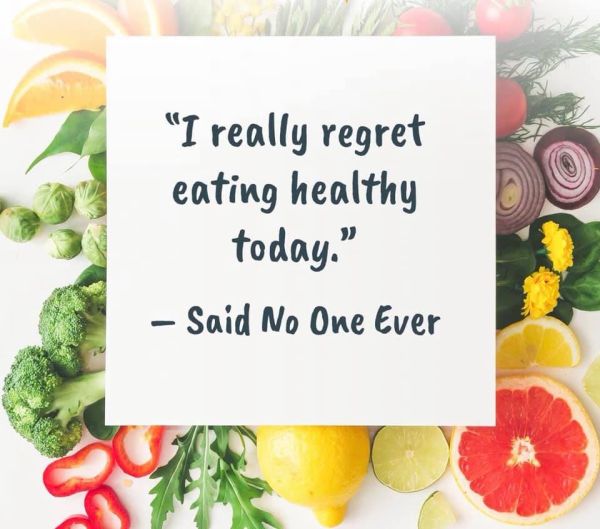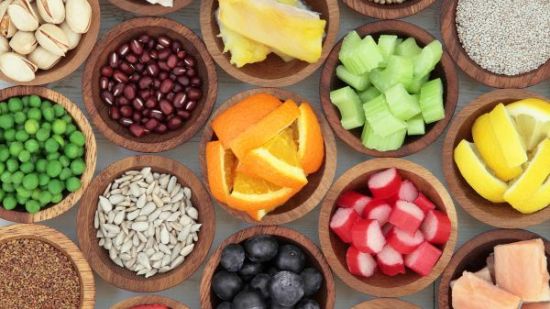Nutrition for endometriosis
Improving your health through good nutrition.......and getting a balanced diet

For many with endometriosis nutrition can be a key factor that enables them to take control of their health and improve how they feel. Eating the wrong foods can cause worsening symptoms when your body is already compromised with an immune-system trying to cope with this disease. Also, inflammatory foods are bad news because endometriosis already causes inflammation, so adding more inflammation is a bad idea.
There are many research articles which validate that what you eat can make a difference to the symptoms or development of endometriosis. You read more HERE
You need to avoid convenience foods as modern food production and convenience foods are seriously lacking in good nutritional value and can further undermine your health. Much of the convenience foods available today have ingredients that may make you feel worse with additives, e-numbers, flavourings, and preservatives.
You need a balanced diet that provides the best quality nutrients needed to support your body, support your immune-system, keeps your gut healthy, and gives you sustained energy. If you can afford it, it helps to eat organic and add in more whole-foods.
Let’s look at the basics of nutrition….
Having a basic insight into the role of vitamins, minerals, carbs and protein will help to ensure you are getting a balanced diet with all the required nutrients to support your system.
Essentially nutrition refers to how the body takes in vitamins and minerals and how it converts this fuel to support the body. Nutritional value refers to how much benefit nutritionally can be gained from a certain food and to give us a better understanding, it is essential to learn what we actually need to sustain and feed the body with the fuel it needs.
We need to consume all the nutrients regularly and this includes:
Fats – for energy and support cell growth. Helps the body to produce certain hormones.
Minerals and vitamins – to maintain many metabolic and body functions
Carbohydrates - for energy and help maintain blood glucose levels
Proteins – from which amino acids are made, helps with cell renewal and maintain tissue

Vitamins and minerals
We need vitamins and minerals to constantly maintain healthy bones and skin and essentially, to ensure all bodily functions work. When a diet becomes un-balanced and lacks certain nutrients then ill-health will develop over time.
Let us take a closer look at the different elements our bodies need.
Vitamins
A vitamin is an organic compound and is an essential nutrient that can be obtained through various foods. Vitamins are divided into two sections:
Fat soluble vitamins
These can survive in the fat cells of the body for weeks or in some cases, months. The body basically stores fat-soluble vitamins in reserve for times of need.
Water-soluble vitamins
These do not get stored in the body for long at all and if you take in more than is needed, you will simply expel them through urination. Water-soluble vitamins need to be replaced continuously.
What each vitamin does in your body
Vitamin B1 - is needed to help with energy and metabolism, it also has a secondary use for nerve function. Found in nuts, seeds and whole-grains
Vitamin B2 - is also used in energy metabolism but also is required to help vision and skin health. Found in whole grains, liver, nuts and seeds
Vitamin B3 - again is used in energy metabolism but has a very important function in the nervous system and in the digestive system too, it also helps to maintain skin health
Vitamin B6 - helps with protein metabolism and assists in making red blood cells. Found in meat, fish, poultry and whole-grains. Also helps eliminate excess estrogen from the body.
Vitamin B12 - is important for the brain and nervous system and helping to make new cells. - Found in fish, poultry, meat and dairy products
Vitamin C - helps with protein metabolism and assists the immune system. It also aids iron absorption. Found mostly in citrus fruits and juices, also in red, yellow and green peppers
Vitamin A - has many uses and primarily is required for vision but also for healthy skin, mucous membranes and used for bone growth and immunity. Found in orange coloured fruits and vegetables and also in dark, leafy greens like kale
Vitamin D - is essential for calcium absorption. Found in fortified milk and dairy products, cereals and in sunshine
Vitamin E - helps to protect cell walls and is good for skin. Found in leafy green vegetables, seeds and nuts
Vitamin K - is needed for proper blood clotting. Found in dark green leafy vegetables.
A healthy diet should provide you with all of the relevant vitamins and minerals but when this is not possible, supplements may be required. In Certain supplements are recommended to help reduce inflammation with endometriosis such as omega 3 oils
Omega 3 fatty acids are found in some plant-based foods but predominantly are found in oily fish like mackerel, salmon, trout, herring.
Role of minerals
Minerals are just as important as vitamins and play a key role in many bodily functions and processes.
Potassium - helps with fluid balance, nerve transmission and muscle contraction and it can be found in meats, milk, fruit and vegetables, and grains.
Calcium - Most people have heard of calcium and know that it is vital for healthy bones and teeth, but it also helps muscles to relax and contract, it also helps with blood pressure regulation, immune system and nerve functioning. It is readily available in milk products and in some canned fish that contain bones like sardines and many dark green leafy vegetables.
Phosphorus - is very important for healthy bones and teeth too, and it is found in every single cell, playing a role in the maintenance of acid balance. It is easy to find because it is in most products that are likely to be included in the average diet such as; meat, fish, poultry, eggs, milk
Magnesium - is found in bones, it plays a very important role in making protein and also works alongside several other minerals in the development of the immune system. It is easy to obtain in a regular diet, being found in nuts, seeds, leafy green vegetables, seafood, chocolate, artichokes and even in hard drinking water.
Magnesium is one mineral that has great benefits for endometriosis as it helps relax muscles and can help with the muscle cramps of period pains.
Iron - is a trace mineral, it forms part of a molecule found in red blood cells which is essential for carrying oxygen around the body, so this plays a big part in energy metabolism. Most people get enough iron through fish, poultry, some shellfish, egg yolks and dried fruits and dark leafy greens. However, if you have heavy periods, which is common with endometriosis, then increasing your intake of iron rich foods, or adding iron supplements may be needed.
Zinc - plays a very important role in our body as it is used for making protein and it also helps us with taste awareness. It plays a secondary role in immune system health, also aiding the healing of wounds. It is found in meats, fish, poultry, whole grains and vegetables.
Selenium – is one mineral that may need supplementing as the soil has become so depleted in this vital nutrient. It has been found that those with endometriosis who supplement with selenium have much improvement in their symptoms. Selenium works as an antioxidant and can be found in seafood, meats and grains.
Copper - helps to aid iron metabolism. It’s available in nuts and seeds, plus whole grains and drinking water.
Chromium - this trace mineral goes hand-in-hand with insulin, so is important for the regulation of blood glucose levels. Found in most unrefined foods.
Carbohydrates
This is where energy for the body is obtained. But there is a big difference between a processed carb and a whole carb. Processed carbohydrates - found in cakes, pastries and other processed foods cause massive spikes in glucose levels in the blood. When this happens, the body gets a rush of energy and then this is followed by a lethargic reaction.
Carbohydrates that come from whole foods release their energy value slowly throughout the day or at least over several hours. For those with endometriosis it is really wise to ensure your carbs come from whole-foods so that you have sustained release of energy to keep you going through the day.
Proteins
The body needs proteins just to keep functioning correctly and protein is broken down in the body into various amino acids and used in a variety of different ways. One of the main functions is that protein helps in the role of transportation of nutrients to the correct places in the body.
As you are well aware, we obtain much of our protein from animal products, but some of these these can cause inflammation. You can however obtain plenty of protein from grains, vegetables, nuts and seeds.
Water – not to be underestimated
Water is essential because it helps digestion and maintains body temperature, and of course helps to remove waste material from the body too. Much of our water comes from consuming food in the form of fruits and vegetables but fresh drinking water is a must as well.
Some with endometriosis have reported that when they increase their water intake, they feel less fatigued and sluggish. Drinking water straight from the tap is sometimes not recommended because of the possibility of contaminates. You can easily remove many of these by using a water jug with replaceable filters.
To sum up:
- Ensure you have a balanced diet that provides you with all the key nutrients
- Remove inflammatory foods such as dairy, red meat
- Remove convenience foods from your diet
- Try to increase your intake of whole-foods which will give you sustained energy with slow release carbs
- Increase your intake of water
Reference:
https://youngwomenshealth.org/2012/06/12/endometriosis-nutrition-and-exercise/
https://www.ncbi.nlm.nih.gov/pubmed/23419794
https://www.healthywomen.org/content/article/lifestyle-and-dietary-changes-endometriosis
https://nzendo.org.nz/endo-news/endometriosis-and-nutrition-sara-widdowson/
 As featured in:
As featured in:




